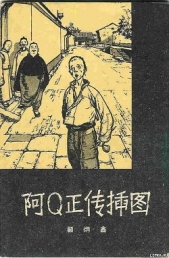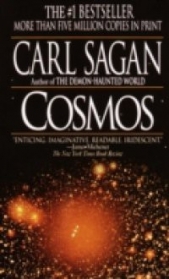Heretics of Dune

Heretics of Dune читать книгу онлайн
Frank Herbert was born in Tacoma, Washington, and educated at the University of Washington, Seattle. He worked a wide variety of jobs - including TV cameraman, radio commentator, oyster diver, jungle survival instructor, lay analyst, creative writing teacher, reporter and editor of several West Coast newspapers - before becoming a full-time writer.
In 1952, Herbert began publishing science fiction with "Looking for Something?" in Startling Stories. But his true emergence as a writer of major stature did not occur until 1965, with the publication of Dune. Dune Messiah, Children of Dune, God Emperor of Dune, Heretics of Dune, and Chapterhouse: Dune followed, completing the saga that the Chicago Tribune would call "one of the monuments of modern science fiction." Herbert is also the author of some twenty other books, including The Jesus Incident, The Dosadi Experiment, and Destination: Void. He died in 1986.
Внимание! Книга может содержать контент только для совершеннолетних. Для несовершеннолетних чтение данного контента СТРОГО ЗАПРЕЩЕНО! Если в книге присутствует наличие пропаганды ЛГБТ и другого, запрещенного контента - просьба написать на почту [email protected] для удаления материала
"How long to Ysai?" Teg asked.
"Another half hour, Bashar. Is there a problem that requires more speed? I don't want to attract..."
"I am very hungry."
The driver glanced left and right. There were no more farmers around them here. The roadway was almost empty except for two heavy transport pods with their tractors holding to the right verge and a large lorry hauling a towering automatic fruit picker.
"It is dangerous to delay for long," the driver said. "But I know a place where I think I can at least get you a quick bowl of soup."
"Anything would be welcome. I have not eaten for two days and there has been much activity."
They came to a crossroads and the driver turned left onto a narrow track through tall, evenly spaced conifers. Presently, he turned onto a one-lane drive through the trees. The low building at the end of this track was built of dark stones and had a blackplaz roof. The windows were narrow and glistened with protective burner nozzles.
The driver said: "Just a minute, sir." 'He got out and Teg had his first look at the man's face: extremely thin with a long nose and tiny mouth. The visible tracery of surgical reconstruction laced his cheeks. The eyes glowed silver, obviously artificial. He turned away and went into the house. When he returned, he opened Teg's door. "Please be quick, sir. The one inside is heating soup for you. I have said you are a banker. No need to pay."
The ground was icy crisp underfoot. Teg had to stoop slightly for the doorway. He entered a dark hallway, wood-paneled and with a well-lighted room at the end. The smell of food there drew him like a magnet. His arms were trembling once more. A small table had been set beside a window with a view of an enclosed and covered garden. Bushes heavy with red flowers almost concealed the stone wall that defined the garden. Yellow hotplaz gleamed over the space, bathing it in a summery artificial light. Teg sank gratefully into the single chair at the table. White linen, he saw, with an embossed edge. A single soup spoon.
A door creaked at his right and a squat figure entered carrying a bowl from which steam arose. The man hesitated when he saw Teg, then brought the bowl to the table and placed it in front of Teg. Alerted by that hesitation, Teg forced himself to ignore the tempting aroma drifting to his nostrils and concentrated instead on his companion.
"It is good soup, sir. I made it myself."
An artificial voice. Teg saw the scars at the sides of the jaw. There was the look of an ancient mechanical about this man - an almost neckless head attached to thick shoulders, arms that seemed oddly jointed at both shoulders and elbows, legs that appeared to swing only from the hips. He stood motionless now but he had entered here with a slightly jerking sway that said he was mostly replacement artificials. The look of suffering in his eyes could not be avoided.
"I know I'm not pretty, sir," the man rasped. "I was ruined in the Alajory explosion."
Teg had no idea what the Alajory explosion might have been but it obviously was presumed he knew. "Ruined," however, was an interesting accusation against Fate.
"I was wondering if I knew you," Teg said.
"No one here knows anyone else," the man said. "Eat your soup." He pointed upward at the coiled tip of quiescent snooper, the glow of its lights revealing that it read its surroundings and found no poison. "The food is safe here."
Teg looked at the dark brown liquid in his bowl. Lumps of solid meat were visible in it. He reached for the spoon. His trembling hand made two attempts before grasping the spoon and even then he sloshed most of the liquid out of the spoon before he could lift it a millimeter.
A steadying hand gripped Teg's wrist and the artificial voice spoke softly in Teg's ear: "I do not know what they did to you, Bashar, but no one will harm you here without crossing my dead body."
"You know me?"
"Many would die for you, Bashar. My son lives because of you."
Teg allowed himself to be helped. It was all he could do to swallow the first spoonful. The liquid was rich, hot and soothing. His hand steadied presently and he nodded to the man to release the wrist.
"More, sir?"
Teg realized then that he had emptied the bowl. It was tempting to say "yes" but the driver had said to make haste.
"Thank you, but I must go."
"You have not been here," the man said.
When they were once more back on the main road, Teg sat back against the groundcar's cushions and reflected on the curious echoing quality of what the ruined man had said. The same words the farmer had used: "You have not been here." It had the feeling of a common response and it said something about changes in Gammu since Teg had surveyed the place.
They entered the outskirts of Ysai presently and Teg wondered if he should attempt a disguise. The ruined man had recognized him quickly.
"Where do the Honored Matres hunt for me now?" Teg asked.
"Everywhere, Bashar. We cannot guarantee your safety but steps are being taken. I will make it known where I have delivered you."
"Do they say why they hunt me?"
"They never explain, Bashar."
"How long have they been on Gammu?"
"Too long, sir. Since I was a child and I was a baltern at Renditai."
A hundred years at least, Teg thought. Time to gather many forces into their hands... if Taraza's fears were to be credited.
Teg credited them.
"Trust no one those whores can influence," Taraza had said.
Teg sensed no threat to him in his present position, though. He could only absorb the secrecy that obviously enclosed him now. He did not press for more details.
They were well into Ysai and he glimpsed the black bulk of the ancient Harkonnen seat of Barony through occasional gaps between the walls that enclosed the great private residences. The car turned onto a street of small commercial establishments: cheap buildings constructed for the most part of salvaged materials that displayed their origins in poor fits and unmatched colors. Gaudy signs advised that the wares inside were the finest, the repair services better than those elsewhere.
It was not that Ysai had deteriorated or even gone to seed, Teg thought. Growth here had been diverted into something worse than ugly. Someone had chosen to make this place repellent. That was the key to most of what he saw in the city.
Time had not stopped here, it had retreated. This was no modern city full of bright transport pods and insulated usiform buildings. This was random jumbles, ancient structures joined to ancient structures, some built to individual tastes and some obviously designed with some long-gone necessity in mind. Everything about Ysai was joined in a proximity whose disarray just managed to avoid chaos. What saved it, Teg knew, was the old pattern of thoroughfares along which this hodgepodge had been assembled. Chaos was held at bay, although what pattern there was in the streets conformed to no master plan. Streets met and crossed at odd angles, seldom squared. Seen from the air, the place was a crazy quilt with only the giant black rectangle of ancient Barony to speak of an organizing plan. The rest of it was architectural rebellion.
Teg saw suddenly that this place was a lie plastered over with other lies, based on previous lies, and such a mad mixup that they might never dig through to a usable truth. All of Gammu was that way. Where could such insanity have had its beginnings? Was it the Harkonnens' doing?
"We are here, sir."
The driver drew up to the curb in front of a windowless building face, all flat black plasteel and with a single ground-level door. No salvaged material in this construction. Teg recognized the place: the bolt hole he had chosen. Unidentified things flickered in Teg's second vision but he sensed no immediate menace. The driver opened Teg's door and stood to one side.






















